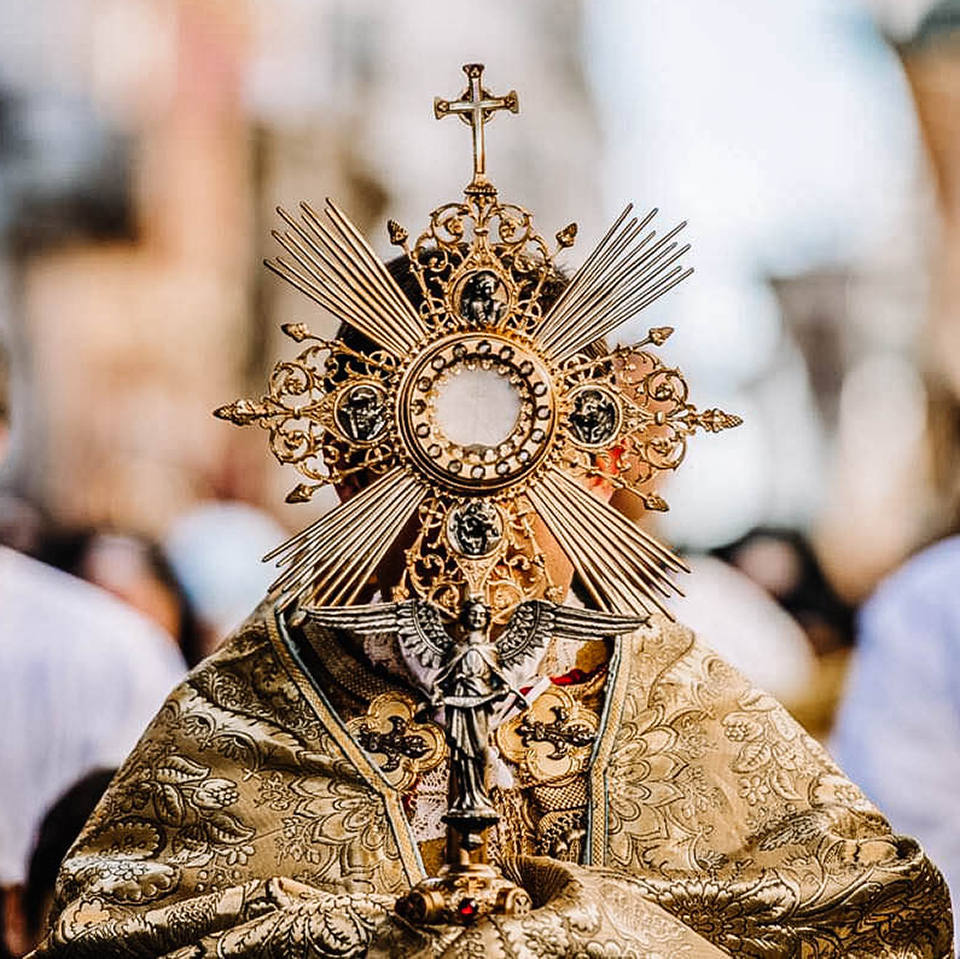Without the liturgy, the social fabric degenerates. So thought the popes of the early twentieth century, and so thought Fr. Virgil Michel, an American Benedictine monk at St. John’s Abbey in Collegeville, Minnesota who died in 1938. He was the bridge by which the liturgical movement came to this country, and he understood the importance of the liturgy in uniting and healing a wounded and divided nation such as ours. During this time of social unrest and separation from the sacraments, Fr. Michel’s writings can help us see how the life of the world comes through the liturgy.
God’s ways and times are not our own, and I think Fr. Michel would find it perhaps fitting that at a time when many in the country are so divided, we are preparing (in celebration of the Feast of Corpus Christi) to process through the city streets presenting the Eucharistic Christ to the world, the answer to our prayers. Imagine if the two could converge and walk together—a reminder that Christ is the great unifier of all people. His saving victimhood makes him one with every victim of injustice; his Resurrection brings a promise of all things being made new, and put right.
This feast beautifully demonstrates the connection between the liturgy and social justice by showing the world its source and unity in Christ who as the Son unites us to the Father. From the heart of the Church flows the Eucharist that affects the life of the world. It is important to note that the liturgy is interested in the world for the sake of bringing the world into the liturgy. Fr. Michel understood this connection very well.
The following syllogism by Fr. Michel rocked my world, and I think it might do the same for you. It goes as follows: “Pius X tells us that the liturgy is the indispensable source of the true Christian spirit; Pius XI says that the true Christian spirit is indispensable for social regeneration. Hence the conclusion: The liturgy is the indispensable basis of Christian social regeneration.”
This syllogism, which unified what I thought were separate things, rocked me so hard that I made it the heart of my Catholic Social Justice class, and—no surprise—my students ate it up just as much as I did. The flaw in much Catholic religious education is that it often presents in separation what should be united, such as liturgy and social justice. This has led to a division amongst Catholics: on one side you have the social justice Catholics and, on the other, the die-hard liturgists. But the Church would be of great service to this divided nation by bringing the two together, so that all may be made one in Christ.
Fr. Michel’s insight came to me through Dr. David Fagerberg in his very pertinent lecture “Liturgy, Social Justice, and the Mystical Body of Christ.” As Christians, we know that no justice can be had without ultimately being grounded in Christ, who is the visible Victim on the crucifix, and the Eternal Victory made manifest in his Church. Our social degeneration can only find its healing and ultimate regeneration in Christ. He is the symbol (sym + ballein, “to bring together”) par excellence, and he will bring society together to the extent that he is permitted into our hearts.
The Feast of Corpus Christi is almost here, a day we bring Christ in the Eucharist to the streets. He knocks on the doors of our hearts to let him in so that we may truly live. Hopefully, by his cross and Resurrection, we can experience his freedom and healing.
“He shall be peace,” wrote the prophet Micah (Mic. 5:4). “Lord, to whom shall we go?” asked Peter (John 6:68). If we seek peace, there is no other place for us to go but to the Lord. For in Christ Jesus, who is Peace, we find peace; in the Lord who is Justice, we find justice; in the saving Lord, we find liberation.
May the wounded body of our nation find its healing and salvation in the transcending and ever-new Body of Christ, which pierces every veil to enter every willing heart, and becomes intimately one with us through the Eucharist and the Mass.
